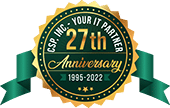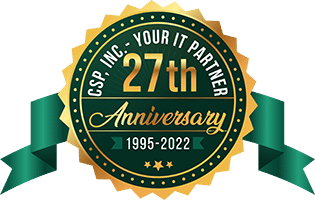1310 Nowell Road
Raleigh, NC 27607
1310 Nowell Road
Raleigh, NC 27607
Existing CSP Client: (919) 424-2060
SALES: (919) 420-3231

In today’s digital age, malware has become a significant threat to individuals, businesses, and governments worldwide. Malware is a type of software designed to harm computer systems, networks, and devices, and it comes in many different forms.
Understanding the different types of malware is crucial in protecting yourself and your organization from cyber threats.
Malware can be classified into several categories, including viruses, worms, trojans, ransomware, adware, spyware, and rootkits. Each type of malware has its unique characteristics and can cause different levels of damage.
For example, viruses are known for replicating themselves and spreading to other systems, while ransomware can encrypt your data and demand payment for its release.
Preventing malware attacks is the best way to protect yourself and your organization. You can do this by regularly updating your software, using strong passwords, and being cautious when opening emails or downloading files from unknown sources. However, if you do fall victim to a malware attack, detecting and responding to it quickly is crucial.
This can involve running antivirus software, disconnecting from the internet, and seeking professional help if necessary.
When it comes to identifying and understanding malware types, it’s important to know what you’re dealing with. Malware is any type of malicious software that is designed to cause harm to your computer, steal your personal information, or disrupt your system. There are many different types of malware, each with its own unique characteristics and behaviors.
In this section, we’ll take a closer look at some of the most common types of malware and what you need to know about them.
Viruses and worms are two of the most well-known types of malware. A virus is a program that is designed to replicate itself and spread from one computer to another. A worm, on the other hand, is a self-replicating program that spreads through networks.
Both viruses and worms can cause significant damage to your system, and they often spread through email attachments or malicious downloads.
Trojans and rootkits are two types of malware that are designed to remain hidden on your system. A Trojan horse is a program that appears to be legitimate but is actually designed to give an attacker access to your system. A rootkit is a type of malware that is designed to hide its presence on your system, making it difficult to detect and remove.
Spyware and keyloggers are two types of malware that are designed to steal your personal information.
Spyware is a program that is installed on your system without your knowledge, and it is designed to collect information about your browsing habits, personal information, and more. Keyloggers are programs that record every keystroke you make, including your passwords and other sensitive information.
Ransomware and crypto-malware are two types of malware that are designed to extort money from their victims. Ransomware is a type of malware that encrypts your files and demands payment in exchange for the decryption key.
Crypto-malware, such as Cryptolocker or Ryuk, is a type of ransomware that uses advanced encryption algorithms to make it nearly impossible to recover your files without paying the ransom.
Adware and malvertising are two types of unwanted software that can disrupt your system and cause damage. Adware is a program that displays unwanted advertisements on your system, while malvertising is a type of online advertising that is designed to spread malware.
Botnets and DDoS attacks are two types of malware that are designed to disrupt your system. A botnet is a network of infected computers that can be used to launch DDoS attacks or other malicious activities. DDoS attacks are designed to overwhelm a system with traffic, making it difficult or impossible to use.
Fileless malware and exploit kits are two types of malware that are designed to avoid detection. Fileless malware is a type of malware that does not rely on files to infect a system, while exploit kits are programs that are designed to take advantage of vulnerabilities in your system.
Both types of malware can be difficult to detect and remove, making them particularly dangerous.
When it comes to malware, prevention, detection, and response are key. Implementing security measures can help secure your systems and networks from potential threats.
Here are some best practices for malware prevention:
To protect your computer systems and networks, there are several security measures you can take. First, ensure that all software is up-to-date with the latest security patches. This includes not only your operating system, but also any software you use regularly, such as web browsers and productivity suites.
Additionally, consider using a firewall to control incoming and outgoing traffic.
Malware detection is another important aspect of preventing cyber threats. Antivirus software can help detect and remove known malware, but it’s important to keep it up-to-date to ensure it can identify the latest threats. Behavioral analysis is another technique that can help detect malware by analyzing the behavior of files and processes on your system.
In addition to securing your systems and using malware detection techniques, there are several best practices you can follow to prevent malware from infecting your devices. Be cautious when opening email attachments, especially from unknown or suspicious sources. Phishing and vishing attacks can also be used to trick you into downloading malware or giving away sensitive information. Be wary of suspicious links, and avoid using removable media from unknown sources. Cloud storage and mobile devices are also potential targets for malware.
Be sure to use trusted sources when downloading apps or accessing cloud storage.
Additionally, consider using encryption to protect sensitive data on your mobile devices.
Malware can cause financial losses and data loss, so it’s important to take cybersecurity seriously. Hackers may use malware to steal personal information or cryptocurrency, or to gain unauthorized access to your systems. Some well-known examples of malware include Stuxnet, Trickbot malware, and SQL Slammer. Potentially unwanted programs and tech support scams are also common types of malware.
In the event that malware does infect your system, it’s important to have an incident response plan in place. This can help you quickly contain and remove the malware, minimizing the damage it can cause.
There are several types of malware that can affect your computer system, such as viruses, worms, trojans, spyware, adware, ransomware, and rootkits.
Each type of malware has its unique characteristics, and they can cause varying degrees of damage to your computer system.
There are several ways to protect your computer from malware infections. You can start by installing anti-malware software that can detect and remove malware from your computer. You should also keep your operating system and software up-to-date to prevent vulnerabilities that malware can exploit.
Additionally, you should be cautious when downloading and installing software from the internet and avoid clicking on suspicious links or attachments in emails.
Some examples of malware include the WannaCry ransomware, the Mirai botnet, and the Stuxnet worm. Each type of malware has its unique characteristics and can affect your computer system differently.
For example, ransomware can encrypt your files and demand payment to restore access, while a worm can spread across a network and infect multiple computers.
Rootkits are one of the most difficult types of malware to identify because they can hide their presence on your computer system. They can also modify the operating system to prevent detection by anti-malware software.
Malware can enter a computer system through several ways, such as email attachments, malicious websites, software downloads, and infected USB drives. Once malware infects a computer, it can spread through networks, emails, and other means to infect other computers.
Malware can have a significant impact on both personal and business computers. It can cause data loss, financial losses, and damage to a company’s reputation. In some cases, malware can also lead to legal action and fines.
Therefore, it is essential to take steps to protect your computer system from malware infections.

Always at your service to provide the highest level of quality support to our customers.

Anthony Firth Client Engineer

“I’m passionate about building and fostering relationships, and finding solutions for success.”

Michael Koenig Client Account Manager

“I help clients stabilize and grow their IT infrastructure so they can focus on growing their core business.”

Josh Wilshire Systems Engineer Team Lead

“I strive to provide the highest level of quality service to our customers.”

Tommy Williams Sr. Hardware Engineer

“I’m driven by the steadfast belief that technology must serve as a business enabler. This mantra has driven 21
Years of successful partnerships.”

Stephen Riddick VP Sales & Marketing

“CSP doesn’t succeed unless your company succeeds.”

Stephen Allen Inventory Manager

“Through my intuition and genuine concern to help others I have built long-lasting relationships with our customers, co-workers and business partners.”

Scott Forbes VP Support Services

“Every day, I work with clients to help plan the future of their businesses.”

Michael Bowman vCIO

“Your IT problems become our IT solutions.”

Mark McLemore Project Engineer

“Managing internal and external operations to ensure that CSP provides quality and reliable customer service .”

Margie Figueroa Business Manager

“Providing quality internal and externals financial support to our customers and accounting support to CSP.”

Katie Steiglitz Accounting Administrator

“Some call me the CEO. I call myself the Cheerleader for an awesome team!”

William B. Riddick Founder & CEO

“CSP is here to assist you with your IT needs.”

Beth Wylie Inside Sales Manager




On What Questions You Need To Ask Before Signing Any Agreement.
"*" indicates required fields

Raleigh IT Support Company and IT Services Provider | CSP Inc.
1310 Nowell Rd,
Raleigh, NC 27607
Existing CSP Client: (919) 424-2060
SALES: (919) 420-3231
Receive email updates and informative marketing materials by subscribing to our newsletter.
"*" indicates required fields